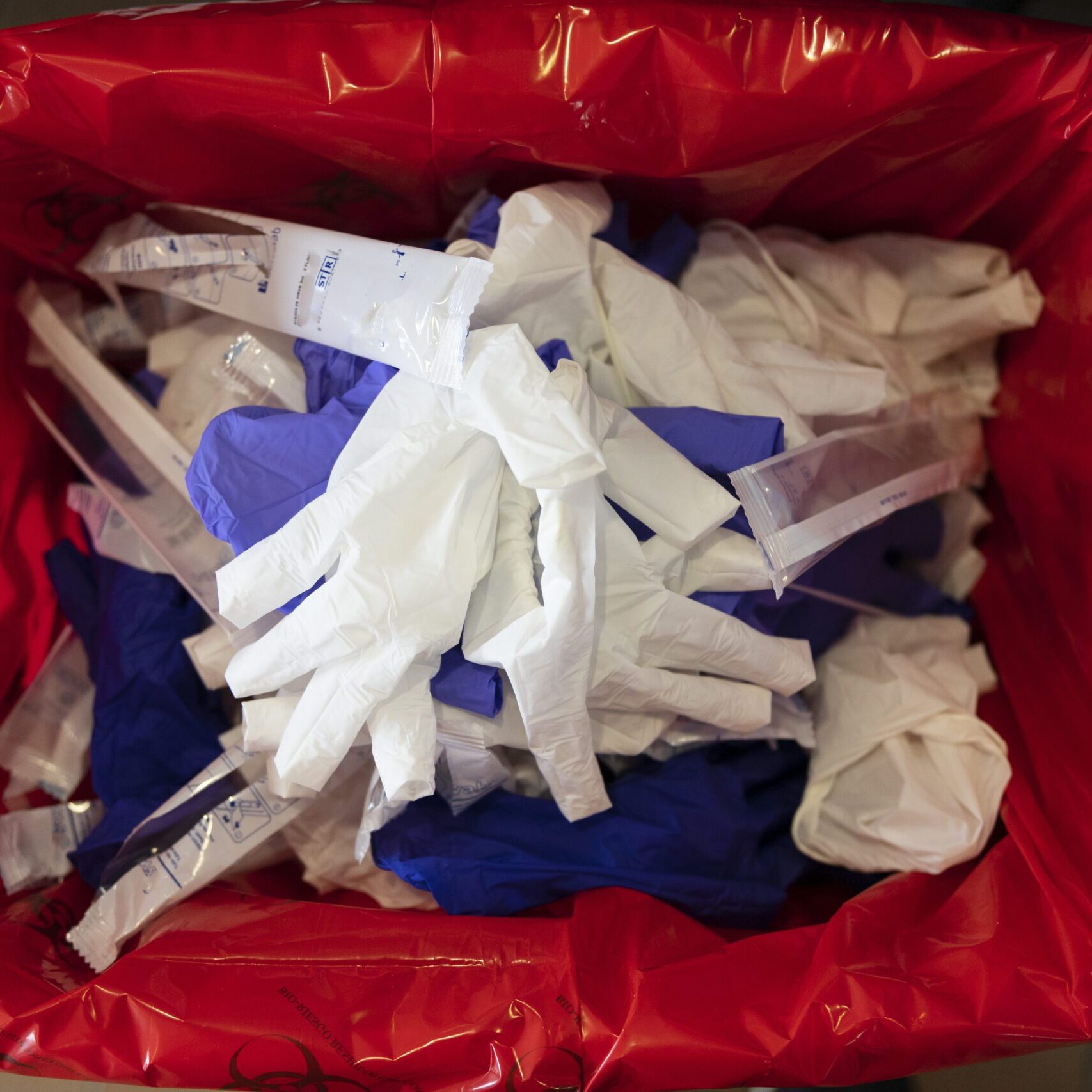Healthcare facilities across Pennsylvania — from hospitals and outpatient clinics to dental practices, laboratories, and long-term care facilities — are required to manage medical waste in strict compliance with state and federal law. Failure to follow Pennsylvania medical waste regulations can result in costly penalties and risk to staff and patients.
This guide provides an overview of the most important rules, agencies, and resources you should be aware of.
What Is Regulated Medical Waste in Pennsylvania?
Pennsylvania follows 25 Pa. Code §271.1, which defines regulated medical waste, or infectious waste. These are some examples of items that qualify:
- Human blood and body fluid waste
- Pathological waste (organs, tissues, body parts)
- Animal waste from research or infected animals
- Cultures and stocks of infectious agents
- Isolation waste from highly infectious patients
- Used sharps (needles, syringes, scalpels, broken glass)
- Chemotherapeutic waste (unless classified as hazardous under RCRA)
Not all healthcare waste falls into this category. Items like soiled diapers, cremated remains, and home-generated sharps typically fall outside state medical waste rules.

Key Pennsylvania DEP Regulations
The Pennsylvania Department of Environmental Protection (DEP) oversees the state’s medical waste program under Chapter 284. Some key regulations facilities must comply with include:
- Storage rules: Waste must be stored in leak-proof, labeled containers, secured to prevent unauthorized access.
- Time limits: RMW may only be stored at room temperature for 30 days.
- Transporter licensing: Only DEP-licensed transporters may haul infectious and chemotherapeutic waste.
- Manifests: Generators must prepare a DEP waste manifest and retain it for at least two years.
- Treatment/disposal: RMW must be processed at DEP-permitted facilities by incineration, autoclaving, or other approved methods.
For more helpful DEP links like inspection forms and transporter requirements, visit DEP Medical Waste Program Overview.
Federal Regulations That Apply
Healthcare providers in Pennsylvania must also follow requirements established by federal agencies that oversee medical waste management:
- OSHA – Sets rules to protect employees, including the Bloodborne Pathogens Standard for sharps safety, PPE, and exposure control.
- DOT / PHMSA – regulates packaging and transport. Refer to the DOT Infectious Substances Overview and 49 CFR 173.197 Packaging Requirements.
- EPA – While the agency does not regulate medical waste directly, it monitors hazardous waste handling and disposal under the Resource Conservation and Recovery Act (RCRA). See the EPA Medical Waste resources for more details.
- CDC – Publishes infection control guidelines storage, handling, and treatment of RMW.
- FDA – Oversight of reusable sharps containers as medical devices. See FDA Sharps Disposal in Healthcare Facilities.
- DEA – Regulates disposal of pharmaceutical waste when controlled substances are involved. Reference: DEA Drug Disposal Information.
Compliance and Training Requirements
Healthcare facilities must also ensure staff are trained in handling RMW, sharps, and pharmaceuticals. OSHA, DOT, and DEP all require ongoing training and documentation.
At Advant-EDGE Solutions of Middle Atlantic, Inc., we provide full compliance and training programs — including DOT Regulated Medical Waste Training, OSHA Bloodborne Pathogens, Hazard Communication, HIPAA, and more. We also conduct facility audits to keep your workplace safe and compliant.

Trusted Compliance Solutions for Pennsylvania Medical Waste Regulations
Staying compliant with Pennsylvania medical waste regulations is complex — and penalties for noncompliance are steep. At ASMAI, our team ensures your facility remains safe, efficient, and fully compliant with DEP, OSHA, DOT, EPA, and FDA standards.
We handle every step of your medical waste management program, including:
By partnering with ASMAI, you gain not only reliable waste removal services but also access to compliance training, audits, and recordkeeping tools. You’ll gain peace of mind knowing your waste streams are managed properly, your staff are trained, and your facility is protected from regulatory risk.
Contact us today to review your regulatory compliance needs and request a free quote.
